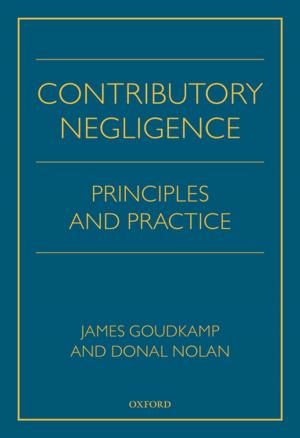A Redactional Study of the Book of Isaiah 13-23
Nonfiction, Religion & Spirituality, Bible & Bible Studies, Old Testament, Criticism & Interpretation| Author: | Jongkyung Lee | ISBN: | 9780192548719 |
| Publisher: | OUP Oxford | Publication: | May 31, 2018 |
| Imprint: | OUP Oxford | Language: | English |
| Author: | Jongkyung Lee |
| ISBN: | 9780192548719 |
| Publisher: | OUP Oxford |
| Publication: | May 31, 2018 |
| Imprint: | OUP Oxford |
| Language: | English |
A Redactional Study of the Book of Isaiah 13-23 argues that a series of programmatic additions were made to the oracles concerning the nations in Isaiah 13-23 during the late-exilic period by the same circle of writers who were responsible for Isaiah 40-55. These additions were made to create continuity between the ancient oracles against the nations from the Isaiah tradition and the future fate of the same nations as the late-exilic redactor(s) foresaw. The additions portray a two-sided vision concerning the nations. One group of passages depicts a positive turn for certain nations while the other group of passages continues to pronounce doom against the remaining nations. This double-sided vision is set out first in Isaiah 14 surrounding the famous taunt against the fallen tyrant. 14:1-2, before the taunt, paints the broad picture of the future return of the exiles and the attachment of the gentiles to the people of Israel. After the taunt and other sayings of YHWH against his enemies, 14:26-27 extends the sphere of the underlying theme of 14:4b-25a, namely YHWH's judgement against boastful and tyrannical power(s), to all nations and the whole earth. The two sides of this vision are then applied accordingly to the rest of the oracles concerning nations in chapters 13-23. To the nations that have experienced similar disasters as the people of Israel, words of hope in line with 14:1-2 were given. To the nations that still possessed some prominence and reasons to be proud, words of doom in line with 14:26-27 were decreed.
A Redactional Study of the Book of Isaiah 13-23 argues that a series of programmatic additions were made to the oracles concerning the nations in Isaiah 13-23 during the late-exilic period by the same circle of writers who were responsible for Isaiah 40-55. These additions were made to create continuity between the ancient oracles against the nations from the Isaiah tradition and the future fate of the same nations as the late-exilic redactor(s) foresaw. The additions portray a two-sided vision concerning the nations. One group of passages depicts a positive turn for certain nations while the other group of passages continues to pronounce doom against the remaining nations. This double-sided vision is set out first in Isaiah 14 surrounding the famous taunt against the fallen tyrant. 14:1-2, before the taunt, paints the broad picture of the future return of the exiles and the attachment of the gentiles to the people of Israel. After the taunt and other sayings of YHWH against his enemies, 14:26-27 extends the sphere of the underlying theme of 14:4b-25a, namely YHWH's judgement against boastful and tyrannical power(s), to all nations and the whole earth. The two sides of this vision are then applied accordingly to the rest of the oracles concerning nations in chapters 13-23. To the nations that have experienced similar disasters as the people of Israel, words of hope in line with 14:1-2 were given. To the nations that still possessed some prominence and reasons to be proud, words of doom in line with 14:26-27 were decreed.















